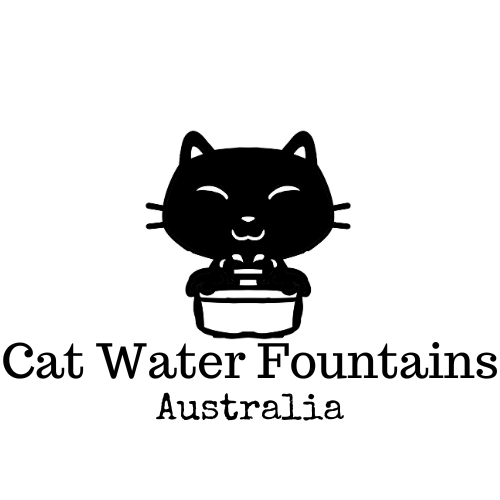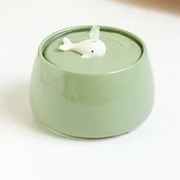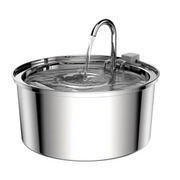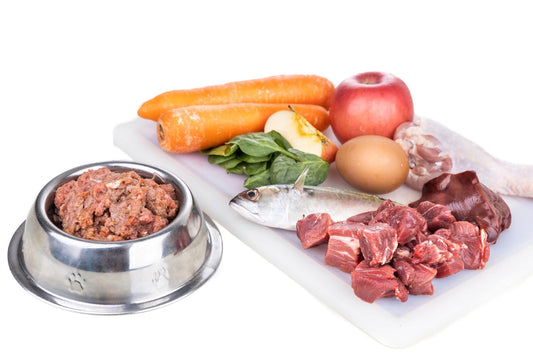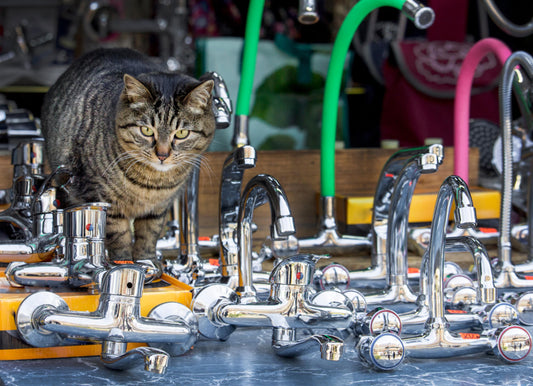Can Cats Safely Eat Dog Food? Unraveling the Potential Dangers
Cat Water Fountains Australia
Share This Article
| Summary: No, cats should not eat dog food as their nutritional requirements differ significantly. Dog food lacks essential nutrients that cats need, such as taurine, arachidonic acid, and vitamin A, making it an inadequate and potentially harmful diet for feline companions. |
Feeding cats a proper and nutritionally balanced diet is crucial for their overall health and well-being. This article explores whether cats can safely consume dog food and highlights the potential risks and considerations associated with such feeding practices. It is important to understand the distinct nutritional requirements of cats and the implications of feeding them dog food.
1. Nutritional Differences Between Cats and Dogs
Cats and dogs have different nutritional needs due to their unique physiology. Cats are obligate carnivores, requiring a higher protein content and specific nutrients, such as taurine, arachidonic acid, and vitamin A, which are not present in sufficient amounts in dog food. It is essential to provide cats with a diet that meets their specific nutritional requirements.
2. Taurine Deficiency in Cats
Taurine is an amino acid that is critical for a cat's overall health, particularly for their cardiovascular and ocular function. Dog food may not contain adequate levels of taurine, leading to a deficiency in cats. Prolonged taurine deficiency can result in serious health issues, including heart disease and visual impairments.
3. Specific Nutrient Requirements for Cats
Cats have specific dietary needs, including arachidonic acid and vitamin A, which are essential for various bodily functions. Dog food may lack these nutrients or provide them in inadequate quantities for cats. Meeting these specific requirements is crucial for maintaining optimal health and preventing deficiencies.
4. Protein Source and Quality
High-quality protein sources are vital for cats due to their unique metabolism. Dog food may contain protein sources that are not biologically appropriate or well-suited for feline nutrition. Cats require protein from animal sources to obtain essential amino acids, which are essential for their overall well-being.
5. Digestibility and Palatability
Cats and dogs have different digestive systems, and their food should reflect these differences. Dog food may be less digestible for cats, leading to gastrointestinal issues and nutrient malabsorption. Additionally, cats may find dog food less palatable, potentially resulting in decreased appetite and inadequate nutrient intake.
6. Potential Health Risks
Feeding cats dog food as a long-term diet can lead to various health risks. Nutrient deficiencies, weight management issues, and other health complications can arise due to the imbalances in the nutritional profile of dog food. It is crucial to provide cats with a diet tailored to their specific needs to avoid these potential health problems.
7. Veterinary Recommendations
Veterinarians widely agree that dog food is not suitable as a staple diet for cats. It is recommended to consult with a veterinarian to ensure cats receive a nutritionally appropriate diet. Veterinarians can provide guidance on selecting commercial cat foods that meet feline dietary requirements and help address any specific health concerns or dietary restrictions.
8. Suitable Alternatives for Cats
To meet the unique nutritional needs of cats, it is essential to choose nutritionally balanced commercial cat foods. These foods are formulated to provide the necessary nutrients in appropriate proportions for feline health. It is important to select products that are specifically labeled for cats to ensure their dietary requirements are met.
Feeding cats dog food poses potential risks and inadequacies due to the differences in nutritional requirements between cats and dogs. Providing cats with a diet tailored to their specific needs is crucial for their optimal health. Consulting with a veterinarian and selecting appropriate cat foods will help ensure cats receive the necessary nutrients and enjoy a healthy and fulfilling life.
Note: This article is intended for informational purposes only and should not be considered as veterinary advice. If you have specific concerns or questions about your cat's diet, it is recommended to consult with a qualified veterinarian.
